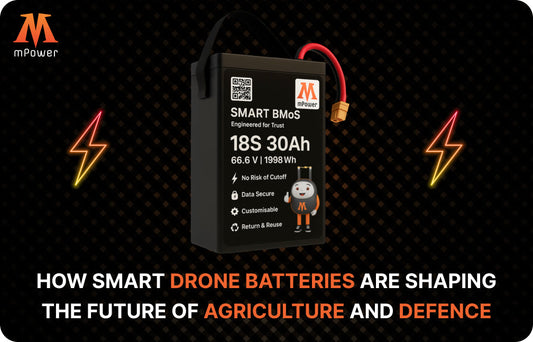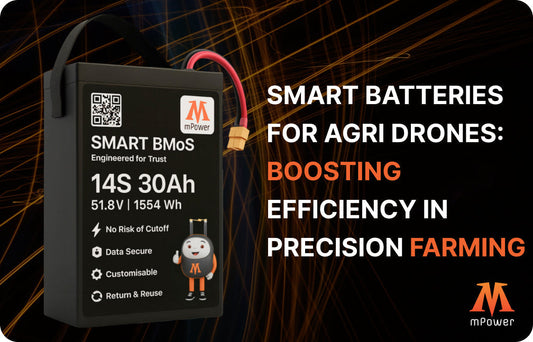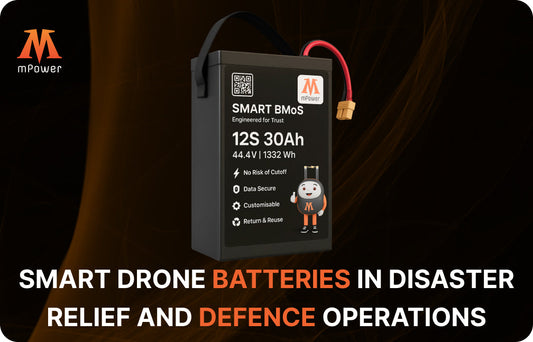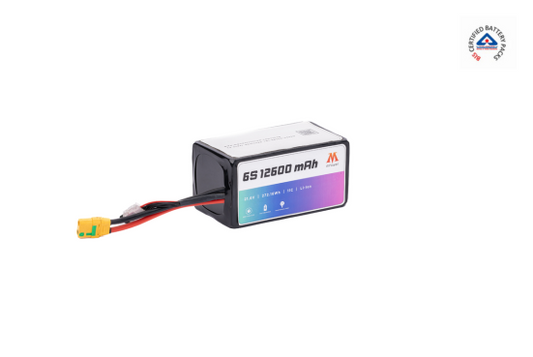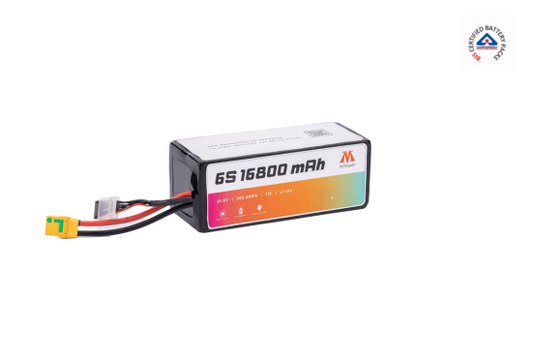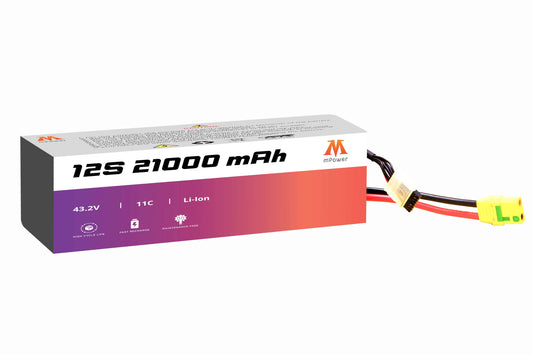In the past few years, agricultural technology has made remarkable advancements. One particularly exciting innovation is the usage of agricultural spraying drones. These unmanned aerial vehicles (UAVs) have transformed how farmers handle their crops, improving the efficiency and accuracy of tasks like pesticide and fertilizer application. However, for these drones to operate effectively, it is crucial to understand how to properly use and maintain their most vital component – the battery.
In this blog post, we will explore the realm of an agriculture drone battery, providing insights on their correct usage, maintenance techniques, and tips for prolonging their life span.
Understanding Agricultural Spraying Drone Batteries
Battery Types
Agricultural spraying drones typically use lithium-ion batteries. These batteries offer a good balance of energy density and weight, making them suitable for drone applications. Li-ion batteries are often preferred for their high discharge rates, which are crucial for the rapid power demands of agricultural spraying drones.
Battery Capacity
The capacity of a drone battery is measured in milliampere-hours (mAh) and determines how long the drone can operate before needing a recharge. Higher-capacity batteries provide longer flight times but may also be heavier. It's essential to choose a battery capacity that suits your specific spraying needs while keeping weight limitations in mind.
Proper Usage of Agricultural Spraying Drone Batteries
Charging
Charging is a crucial aspect of maintenance of the li ion battery for drones. Always use a charger designed for the specific battery type and model of your drone. Overcharging or undercharging can lead to reduced battery life and potential safety hazards. Follow the manufacturer's instructions for charging times and conditions.
Storage
If you won't be using your agricultural spraying drone for an extended period, it's essential to store the batteries properly. Drone batteries should be stored at a partial charge, typically around 50% capacity, in a cool, dry place. This prevents them from deteriorating while in storage.
Avoid Deep Discharges
Deep discharges, where the battery is drained to very low levels, can be detrimental to battery life. Most modern drones have built-in systems to prevent deep discharges, but it's still essential to monitor the battery level during flight and land the drone when the battery reaches a safe minimum voltage.
Operating Temperature
Battery performance can be affected by extreme temperatures. Avoid using your agricultural spraying drone in excessively hot or cold conditions, as this can reduce both flight time and overall battery lifespan.
Maintaining Agricultural Spraying Drone Batteries
Regular Inspection
Periodically inspect your drone batteries for any signs of damage, such as punctures or swelling. Swollen batteries can be dangerous and should be disposed of safely. Ensure that the battery connectors and wires are in good condition as well.
Balance Charging
Many Li-ion batteries used in agricultural spraying drones require balance charging. This ensures that all cells in the battery are charged evenly, preventing imbalances that can lead to reduced performance or even battery failure.
Storage Mode
If you anticipate not using your drone for an extended period, put the batteries in storage mode. This mode discharges the battery to a safe storage voltage, preventing overcharging or deep discharging during storage.
Battery Replacement
Over time, all batteries degrade, and their capacity diminishes. It's essential to keep track of your battery's performance and replace them when necessary. Using a degraded battery can lead to reduced flight time and even mid-flight failures.
Tips for Maximizing Agricultural Spraying Drone Battery Lifespan
Invest in High-Quality Batteries
While high-quality batteries may be more expensive, they tend to last longer and offer better overall performance. Cheap, low-quality batteries can lead to more frequent replacements and increased costs in the long run.
Follow Manufacturer Guidelines
Always follow the manufacturer's guidelines and battery usage, maintenance, and replacement recommendations. These guidelines are specific to your drone model and battery type and are designed to ensure safe and efficient operation.
Keep Spare Batteries
Having spare batteries on hand allows you to continue working without long downtime for recharging. This can be especially important during busy farming seasons.
Why Us?
mPower is a leading provider of drone rechargeable battery in India. We offer a wide range of batteries for different types of drones, including racing, camera, delivery, mapping, survey, surveillance and agricultural drones. Here are some of the factors that make us the best drone lithium-ion battery provider:
- High quality: Our batteries are made using high-quality materials and cutting-edge technology. This ensures that they are durable and reliable.
- Long lifespan: Our batteries have a long lifespan, typically lasting for several years with proper care and maintenance.
- Competitive prices: Our batteries are priced competitively, making them a good value for money.
- Wide range of options: We offer a wide range of batteries for different types of drones, so you can find the perfect battery for your needs.
- Customizable batteries: We also customize batteries to meet your specific requirements.
- Manufactured in India: We are not re-sellers. End customers can approach us directly for any battery related query.
Wrapping Up
The advent of agricultural spraying drones has revolutionized modern farming practices, offering enhanced efficiency and precision when it comes to pesticide and fertilizer application. However, it is imperative for farmers to grasp the proper usage and maintenance techniques for these high-tech tools. This blog post aims to provide comprehensive guidelines that will enable farmers to optimize the lifespan of their agricultural drone rechargeable battery, thereby ensuring consistent success in the crop management endeavors.
It's important to note that adopting safe and responsible battery practices not only benefits your equipment but also positively impacts the environment and overall farming operations.





